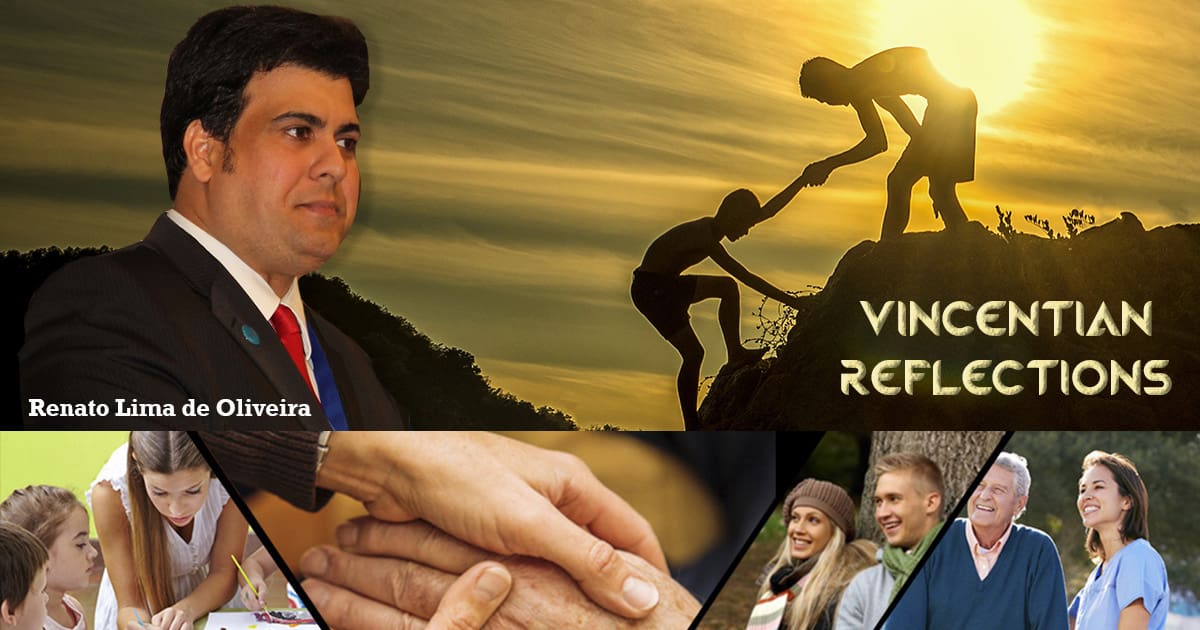In the Eucharistic celebration, when speaking about Jesus’ virtues, the missal emphasizes the fact that to the poor Jesus proclaimed the good news of salvation; to prisoner, freedom; and to the sorrowful of heart, joy (Eucharistic Prayer IV). This is a beautiful passage that invites us to reflect on Jesus’ mission while he was one earth, but at the same time challenges us to reflect on our role as Catholics.
If we are true imitators of Jesus Christ (“Christians”) then we have to act in the same way that Jesus acted: we must enthusiastically proclaim good news and freedom and joy to those men and women who are in need. If we are true Vincentians, then that challenge is more urgent and energizing because we are dealing with people who are excluded and marginalized … and we must attempt to understand their situation without judging them.
Jesus proclaimed that the Kingdom of God is for the poor and calls the poor, blessed … blessed because the Kingdom is theirs. Therefore, those who proclaim Good News to the poor become part of this community of poor men and women and they become poor because they are in communion with those individuals who are poor. Only through communion with the poor will they attain entrance into the Kingdom of God.
Article 489 of the Catechism of the Catholic Church highlights the fact that God often choses those persons who are viewed as powerless and weak to show forth his faithfulness to his promises: Hannah, the mother of Samuel; Deborah; Ruth; Judith and Esther; and many other women. Mary “stands out among the poor and the humble of the Lord, who confidently hope for and receive salvation from him. In Mary, the long-awaited promise of the Old Testament is fulfilled.
In proclaiming salvation to those who are poor, Jesus not only referred to those who are materially poor but also included all those who are poor in spirit: blessed are the poor in spirit, for theirs is the kingdom of heaven (Matthew 5:3). Jesus is saying that those who are humble and not proud … those individuals are blessed. Jesus wants people to have much love and to avoid being arrogant/proud.
The poor in spirit are those who are not arrogant and those who are spiritually rich are those individuals who have accumulated treasure in heaven where neither moth nor rust destroy nor thieves break in and steal (Matthew 6:20). The poor in spirit are those who are humble, persons who do not show off their intelligence nor refer to all the things that they possess … modesty is their distinctive characteristic. In other words, humility is their “entrance ticket” into the Kingdom of heaven. Without humility no other virtue can be developed … humility is the motor behind all beneficent and generous acts … blessed are the humble, for theirs is the kingdom of heaven.
Jesus’ life was one continuous lesson: his silence, his miracles, his gestures of compassion, his prayer, his unconditional love for all people, his preference for the “little ones” and the poor, his redemptive cross, his resurrection. The Catechism states that everything unfolds according to his word and is the integral fulfillment of revelation.
Therefore, dear members of the Society and the Vincentian Family, our mission is to proclaim salvation to those who are poor. Each Conference of the Society can develop an evangelization plan in which charitable action is not only focused on the distribution of material goods but also on the proclamation of the word and the continual search for our own personal sanctification. Only in that way will we become poor like those men and women whom we serve. Let us reflect on those words.
Written by: Renato Lima de Oliveira
16th General President of the Society of Saint Vincent de Paul
Translated: Charles T. Plock, CM
Eastern Province, USA






0 Comments